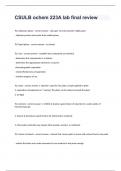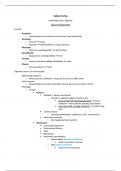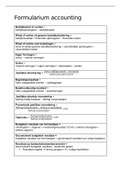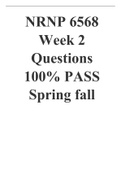Class notes
UCL 2022-23 Lecture notes: Directors' duties
- Course
- Institution
- Book
Comprehensive and complete lecture notes on all directors' duties under the Companies Act 2006. Referenced in writing first-class company law coursework. Covers theories, arguments, and controversies of Companies Act 2006 director's duties, as well as other more niche points of "sleeping directors"...
[Show more]













